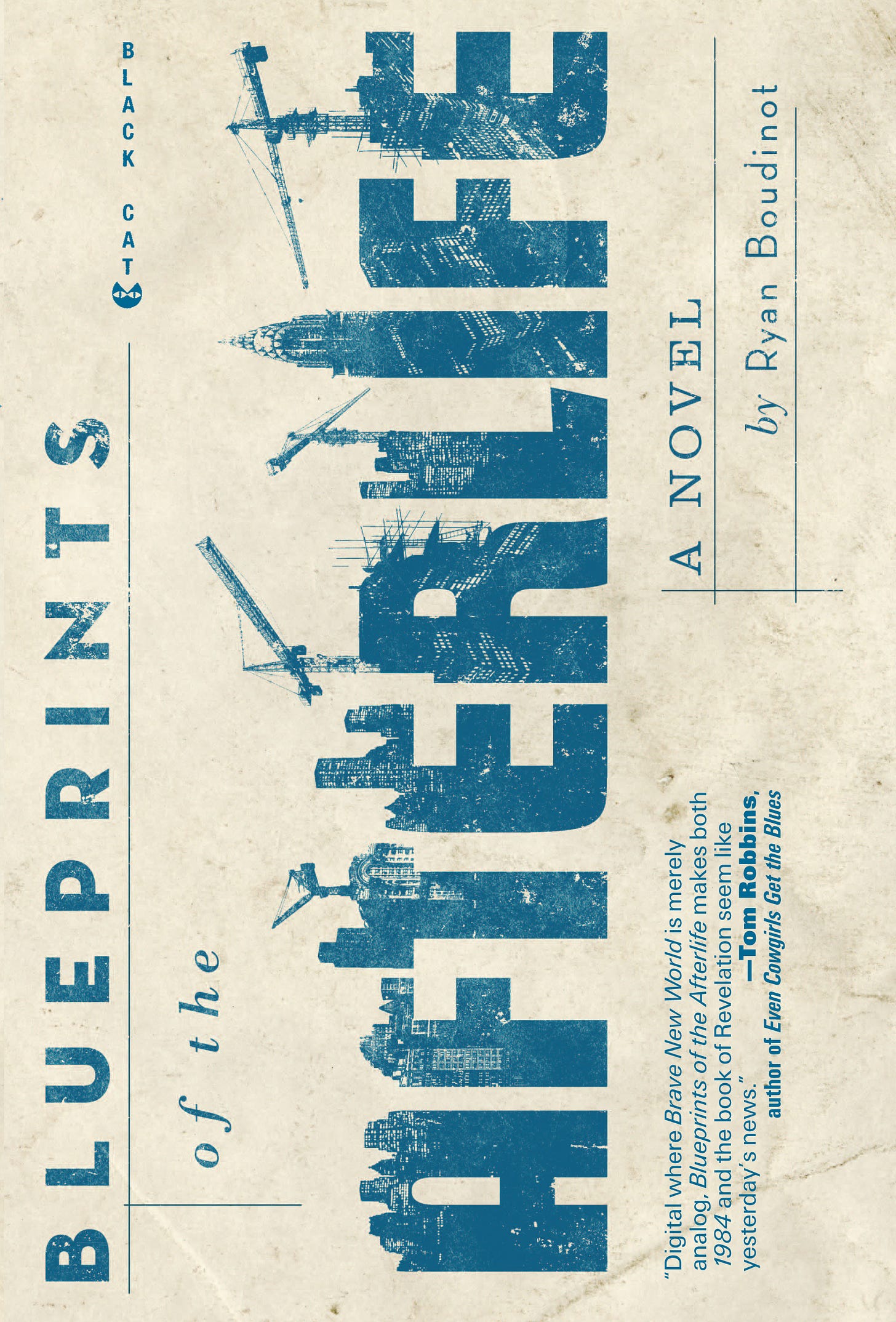A Brief Discussion of The Retrocausal and Telepathic Potential of Quantum Computation
With Philip K. Dick-nominated Author Ryan Boudinot
I’ve been working on a non-fiction book called Outside the City and After the Law that considers the implications of AI instantiating itself from the future, and I came across Ryan Boudinot’s blog An AI and I by Googling “retrocausation and quantum computing.” When I reached out to Ryan via email, he told me that, “I'm pretty sure I sent myself a message from the future that I heard in my head as a kid. Figuring out how to make such a thing happen would seem to close the loop on that experience, which has stuck with me since I was five or so.”
I found this fascinating and Ryan was kind enough to answer a few questions on the matter.

Mike Sauve: How old were you at the time you heard the message?
Ryan Boudinot: I was probably five or six, old enough to read a little.
MS: Did you know or believe at the time that it was a message from the future, or did you only come to believe that retrospectively?
RB: I have come to *suspect* that it was a message sent from the future. I'm still unsure about it.
MS: What was the message, if you don’t mind sharing?
RB: Sure. I was looking at a magazine with my mother. Something like Newsweek or Time. An illustration caught my attention of Lewis Carrol's Alice, but her body was composed of gears and circuits and there were workers tending to her. The caption below this image read "Alice in Technology Land." I asked my mom the meaning of this word, Technology. She explained that it meant machines and computers, stuff like that. An adult male voice then appeared in my my mind and said, "Pay attention to this word. It's going to be really important to you." That's the only experience I've ever had of a voice in my head that didn't obviously come from my own internal monologue.
MS: Has this message, either its contents, or just the fact that you received it, influenced the direction of your novels?
RB: Yes, and I'd say it has influenced the direction of my life in general, actually. As I grew up, I would occasionally remember this incident and think about it in relation to certain experiences. When I first read about virtual reality and Jaron Lanier in one of my dad's engineering magazines in, I wanna say 1989, 90, I remembered the message. Years later, in 2016, I ended up working out of a VR incubation lab and getting involved in an immersive audio R&D lab. I also thought about the message when I got my first tech job, working the phones at Amazon when they just sold books in 1998. The message was sort of a marker for me as I kept confirming what it told me.
MS: If you do close the loop, are you worried about what implications might arise from creating a causal loop that could result in a retrocausality that has a kind of ‘time-binding’ effect?
RB: I'm not sure I understand the implications of this question, but I want to suggest, too, that maybe the message didn't have anything to do with technology at all. Maybe I manage to send it back to myself when I die. Whether it's technology or some function of the Bardo, I don't know, but it seems the loop is already closed. Maybe I should be more worried about this?
MS: How much agency do you feel you have in this? It is an interesting case study for questions around determinism and predestination. What happens if you will yourself not to send the message?
RB: I honestly don't know. There's sort of a Slaughterhouse Five way of thinking about this in that maybe time is actually a spontaneity and our experience of it as linear is a quirk of our particular consciousness.
MS: What ways and means have you investigated for sending the message?
RB: I discovered some writing by a researcher named Julia Mossbridge that I found particularly interesting. She's studied the possibility of communication that transcends the apparent rules of time. But I always have a sort three-part process I go through when I'm speculating about these sorts of things. The first step is just kind of marinating in my own blown mind. Wouldn't it be wild if we could communicate with or former and future selves? DUDE... Then, a voice of reason kicks in and tells me that I'm just trying to make myself feel cool and stroke my ego with the feeling that I might really be on to something. The third step is to reflect on how many of the features of the world we take for granted today would have seemed absolutely preposterous a century ago. Then I try to project ahead and think about what sorts of technologies would seem crazy to me right now.
I actually have an example from my own work. There's a story in my 2004 collection called "Written by Machines" that's about a guy who develops an AI that can write poetry. When I look at that story now, in the era of GPT3, ChatGPT, and Midjourney, my ideas look really quaint and old-fashioned. The reality of AI way overpowered my imagination in this case.
MS: In what ways do you foresee technology, particularly quantum computation, allowing for retrocausal agency?
RB: I'm more fascinated and perplexed by the spatial implications of quantum computation than the temporal. I'm really curious about how spooky action at a distance is going to be expressed in quantum computers. But maybe this is inextricable from the temporal in that quantum entanglement suggests a simultaneous field that exists concurrently with the field where photons zip around? My mind is caving in.
MS: In what ways do you see technology, particularly quantum computation, allowing for telepathy?
RB: Here's the best thing about being a fiction writer--I can just make shit up to answer this question. The short answer: I do not know. The speculative answer: Maybe we're just occupying onion skins of an Everettian many worlds model. Maybe the messages we send and receive aren't being sent in received in our own reality, but across practically identical multiple realities. Maybe consciousness offers a way to slip through to these other realities which overlap our own.
MS: I have an instinct telling me that time travel, in some form, has already commenced, and this is responsible for the escalating pace of change and what I perceive to be the increasing unreliability of history similar to what the AI described in your blog post as “non-trivial changes to the past.” How irrational do you think that makes me?
RB: I entertain similar thoughts. One way I think about this is to look around and say, Shouldn't we all be dead by now? How is it that we've managed to survive this long as as unhinged species farting itself into oblivion? Or, think about how to live your life in such a way that will be interesting, entertaining, or useful to some future intelligence so that it will manipulate the world around you in your favor? And how is that any different than belief in God?
Again, I think it's really important to recognize the role our egos play in this. We're scared, insecure, needy creatures desperate to be recognized and validated, and the thrill of feeling like we've stumbled upon some profound truth, that we're in some sort of inner circle of hidden knowledge, is seductive. As soon as we start going down that path, I think it's crucial to externalize your loving kindness to those around you, care for other peoples' hearts, lift up as many people as well as you can, relieve as much suffering as you're able to in this brief life. Otherwise, what's the point?





If you put this conversation into the playground open AI, choose da Vinci as the model da Vinci will continue this conversation and perhaps you can drive some insights.